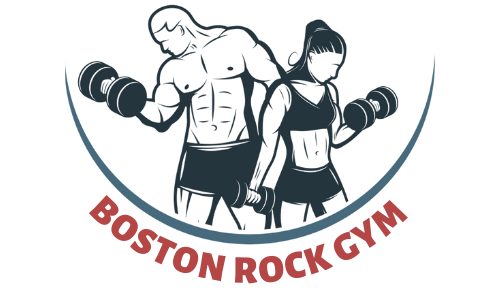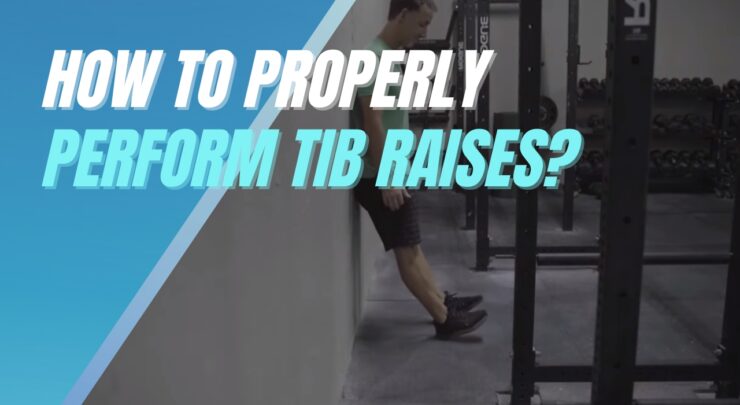Tib raises are known short for tibial anterior raises. It’s a popular type of exercise targeting, as you suppose, the tibialis anterior muscles located at the front of the lower leg. While some may be unfamiliar with this exercise, we must note that it’s a common practice for those targeting the legs while exercising.
Tib raises play a crucial role in lower leg strength and overall lower body stability. That’s why we’ll explore the details of this exercise and see how to perform it correctly. As a result, you’ll get enough knowledge to understand why Tib raises are great and eventually include them in your exercise routine.
But first things first:
Contents
The anatomy of the Tibialis anterior muscle
This muscle, as its name says, is located in the front of the lower leg. It starts from the upper part of the tibia bone and goes to the metatarsal foot bone. This muscle is responsible for dorsiflexion, the movement that brings the toes toward the shin and assists in ankle stabilization during activities like walking, running, and jumping.
As a result, you’re stable walking, standing, and even sitting, because the muscle keeps your legs strong and flexible.
The importance of Tib raises
According to The Tib Bar Guy, a strong tibialis anterior means you can maintain balance and prevent foot drops. If you have problems with foot lifting while walking, probably you need to incorporate Tib raises in your fitness routine. A weak tibialis anterior makes you tired of just a few minutes of walking but also may cause ankle weakness. A strong Tib muscle means your ankle is more stable, reducing the risk of injuries during exercising or running daily errands.
Additionally, you prevent shin splints, a common condition caused by improper stress on the tibialis anterior and other leg muscles. By adding Tib raises to your routine, you prevent shin splits, improve leg stability, and reduce the unbalanced stress on the muscles.
How to properly perform Tib raises?
While there are many ways to perform Tib raises, depending on how advanced your fitness routine is, the goal is to keep the feet flat on the ground and lift the toes.
One way is to sit stable on the bench, with the legs in a 90-degree posture in the knees. Keep the feet on the ground, and lock the heels. Lift the toes, and repeat the exercise as much as needed.
Still, there is a more demanding variant, which we highly recommend. Stand with your back against a wall. Try to put the feet away from the wall so you create a triangle between the floor and wall and your body. This way you’re adding more resistance, making the exercise more demanding.
There are some variants including exercise machines, but no matter which one you practice, the goal is to keep the contraction while raising the feet, and then relax them to the initial position.
Aim for 2-3 sets of 12-15 repetitions. You can perform Tib raises as part of your regular leg workout or in combination with other exercises.
Who needs to perform Tib raises?
Tib raises are great for those who exercise regularly, but also for individuals recovering from surgery or leg injuries. Athletes often include them as a part of their regular training. You can often see basketball or soccer players perform some version of Tib raises to improve performance and reduce the risk of foot and lower leg injuries.
Of course, general fitness enthusiasts may also incorporate these exercises into their regular routine, improving overall body strength and stability.
Popular variants of Tib raises
Previously we described the two basic versions, one while sitting on a bench, and one while pressing with your upper back against a wall. Still, there are some interesting variants we need to mention like weighted Tib raises.
To make the exercise more challenging, you can add weights to the ankles, or maybe hold a dumbbell while performing the raises. However, it’s essential to start with lighter weights and gradually increase as you become more comfortable with the exercise to avoid overstraining the muscles.
Besides seated raises, you can perform them while laying too. Lay flat on your back and extend your feet. Lift the toes towards the body, until you feel a contraction. This is a less demanding, but still effective variant of your favorite exercise.
And one of the most advanced variations is inverted Tib raises. Begin by securing yourself in a dip station or with the support of parallel bars, with your hands gripping the bars and your body suspended. Lower your toes towards the ground and then lift them upward, engaging the tibialis anterior to perform the movement.
The importance of strong Tib muscles
Tib raises let you make controlled movements during exercising, but also throughout the day. You need to perform the exercises properly in order to avoid strains and muscle injuries. It’s also important to breathe properly while exercising, in order to maintain balanced oxygen exchange even after you leave the gym.
Don’t try to push too hard, as you need to progress gradually. Start with a few repetitions and increase them as you gain more confidence. We don’t even need to say that it affects how you stand and walk during the day. Still, don’t mind challenging yourself every now and then, but never overdo exercises.
Conclusion
Tib raises don’t seem like a challenging exercise, but those who tried them know it’s not really like that. Even though there are no visible movements, the extension, and muscle elongation are quite effective for those looking for leg and foot stability.
Anyway, if you aren’t sure how to perform these exercises, we recommend working with a dedicated trainer who will guide you through the whole process. No matter if you’re an athlete or just a casual fitness enthusiast, performing the exercises properly ensures you get the most of the effect, and strengthen your body accordingly.
So, don’t wait and try incorporating Tib raises into your fitness routine today. You’ll be surprised how effective they are, especially for keeping the body posture stable and balanced.





